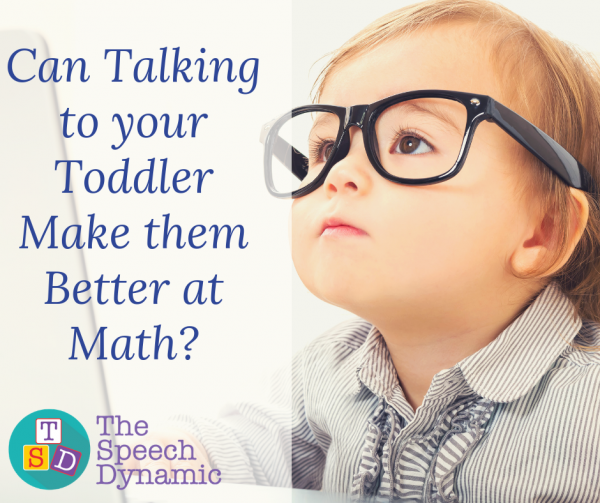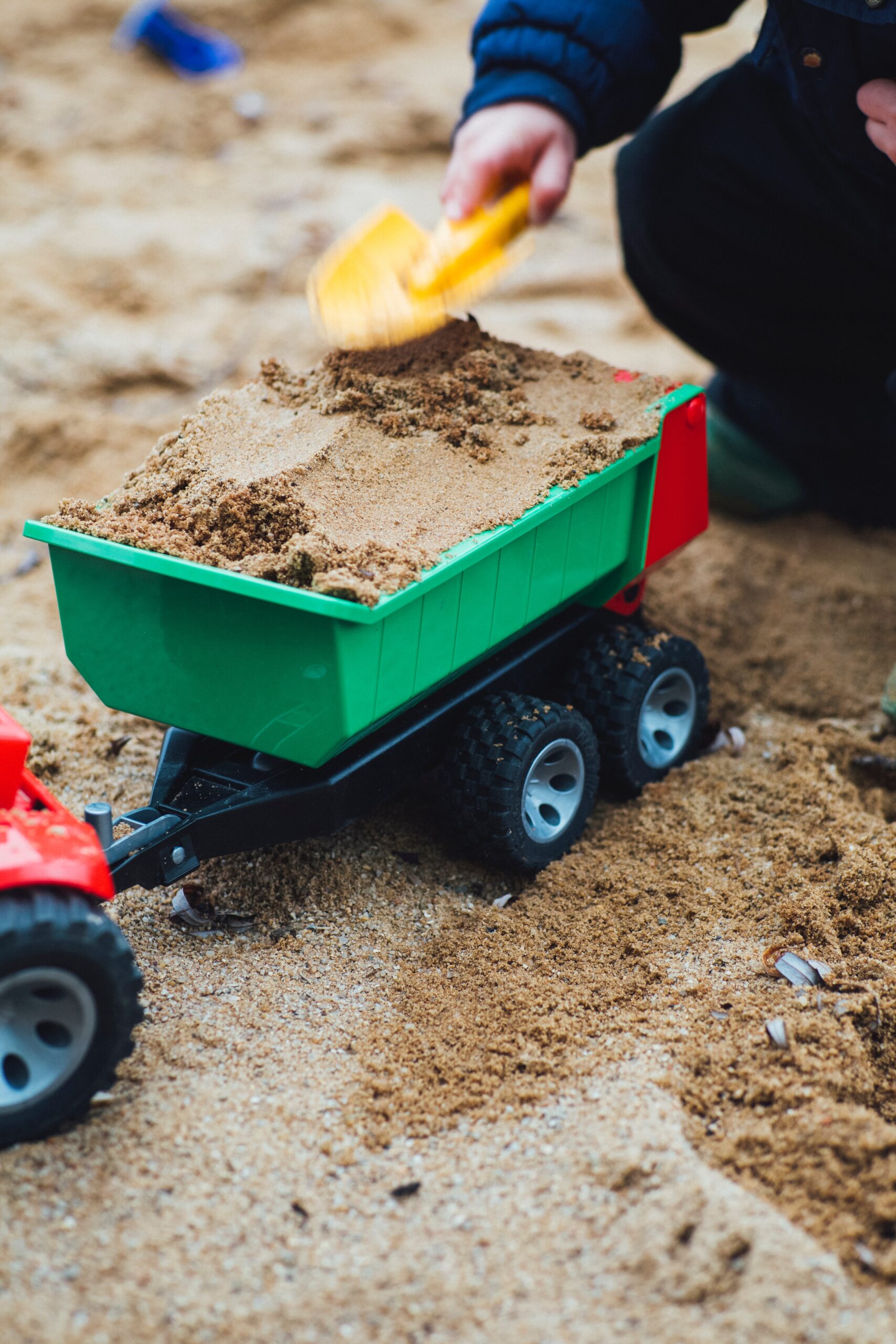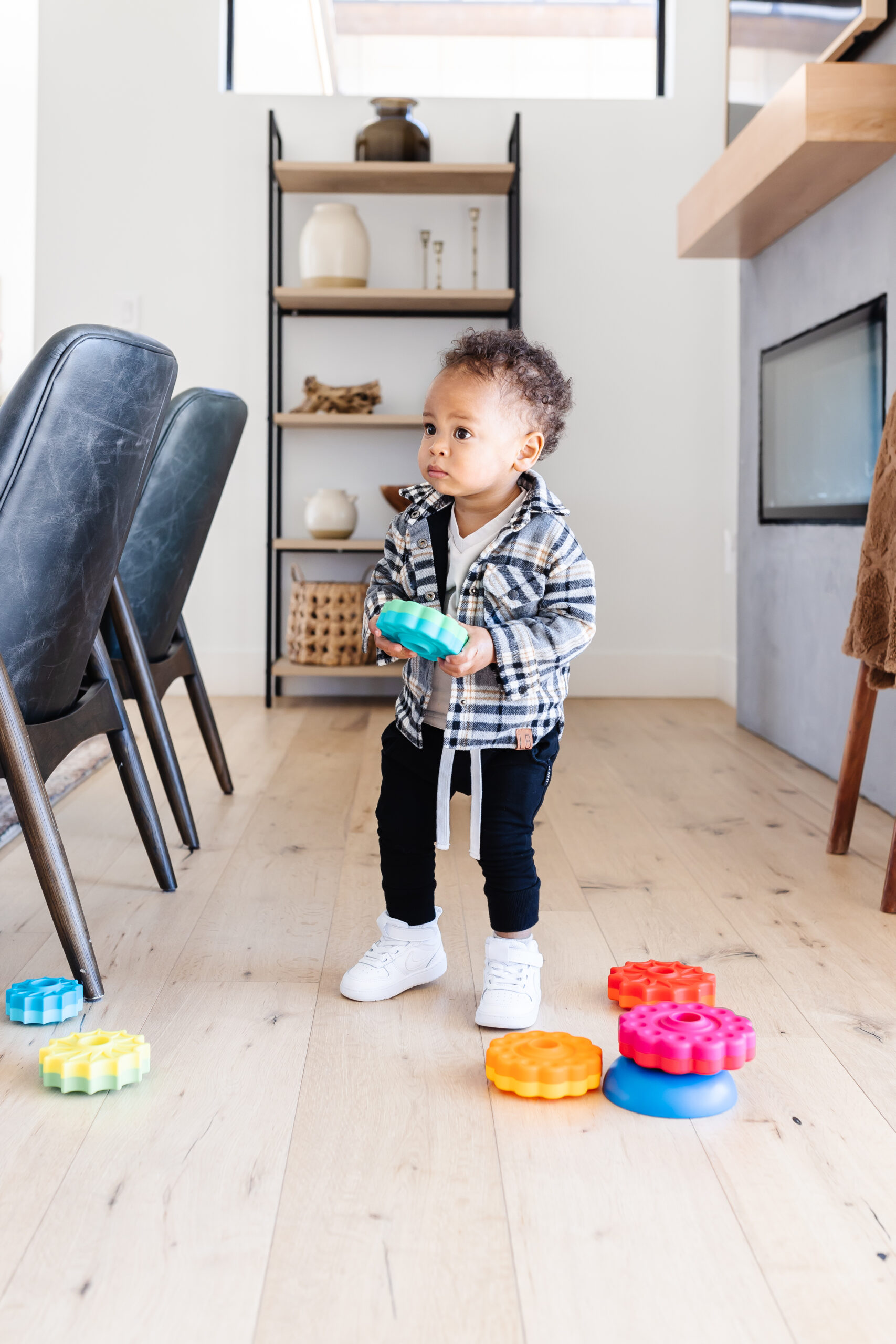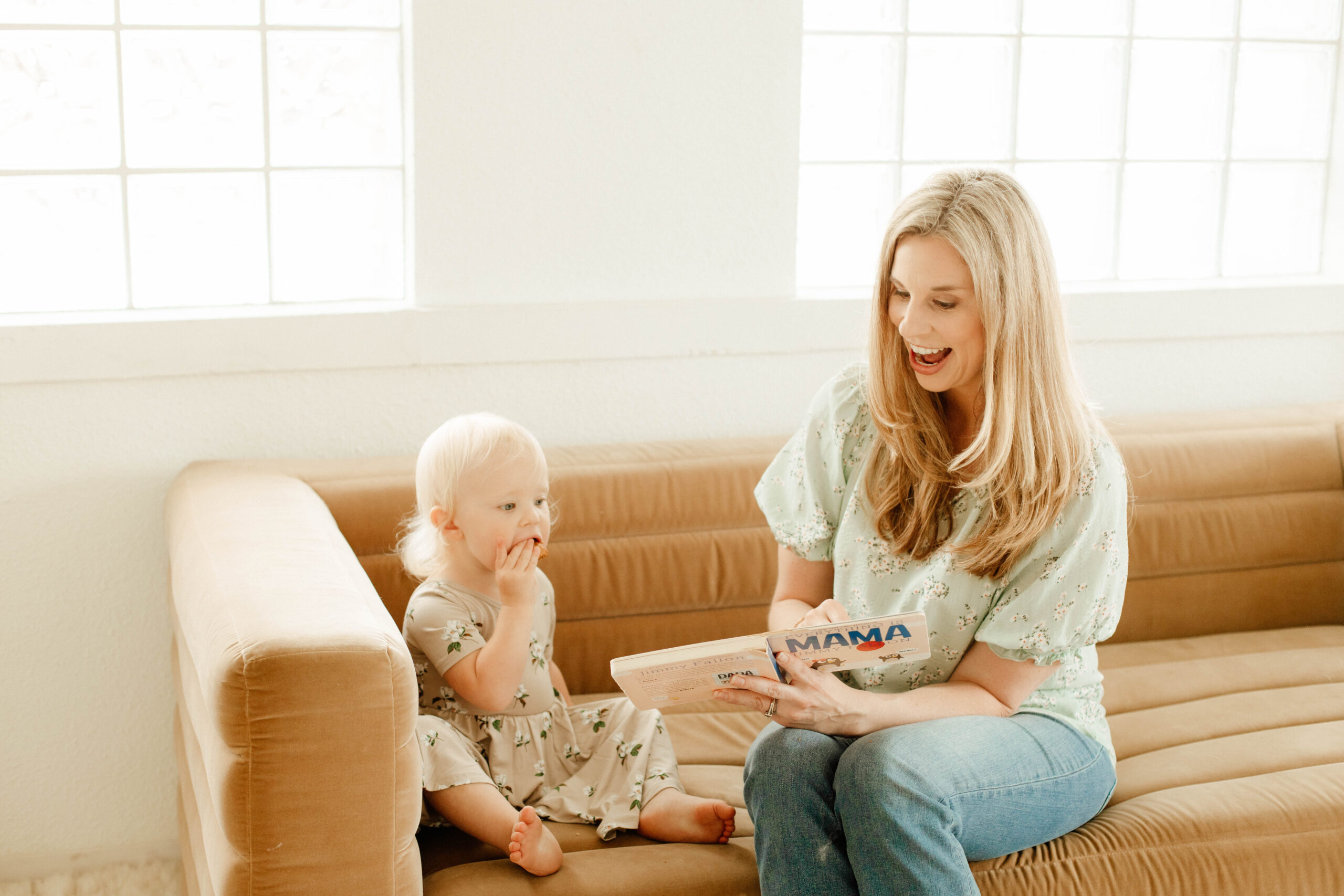
You may not be surprised to learn that there is a link between talking to your toddler and later language and vocabulary development. However, did you know there is a link between early parent language and later spatial and math abilities?
In a study by Pruden, Levine, and Hottenlcher (2011), researchers followed children between 14 and 46 months of age to explore how parent language input would predict children’s performance on three spatial tasks at 54 months of age. The types of “spatial words” included the following:
Shape terms such as triangle, circle and octagon
Dimension adjectives such as big, little, tall, small, and long
Spatial features such as bent curvy, edge, side, line, and corner
The researchers found large variability between the number of spatial words parents used, varying between 5 to 525. If one were to extrapolate for a week based on 8 hour days, it would yield a range of 21 spatial words to 2178 parents spatial words to children, a 100-fold difference (Pruden, Levine, and Hottenlcher, 2011)
What the researchers found was the more spatial words the parent used, the more spatial words the child used! The number of spatial words the child heard and used actually predicted how well they did on a variety of spatial tasks at 54 months of age. “By focusing on talk about the size and shapes of objects, we show that parents who provide more talk about these aspects of space have children who do the same” (Pruden, Levine, and Hottenlcher, 2011).
This shows us the power of parent talk! In addition to labeling what your child is interested in, talk about it!
Share what it does (“It’s a ball! It bounces”)
Describe it (“This side is red and this side is blue)
Talk about the location (Your ball is under the table!)
Talk about the size (Your ball is big!) More opportunities to model spatial words!
Talk about color (This ball has blue, red, and white!)
In another study about early parent talk and later math abilities, Levine and her colleagues found that early number talk such as “That octopus has eight legs” and counting increased a child’s ability to learn the cardinal rule of numbers. The cardinal rule is the understanding that a number refers to a specific number of items in a set and can be hard for children to master.
Interestingly, the researchers found the biggest impact when parents included larger numbers (4-10) in addition to 1-3. They also found the benefit was greater was when the objects were present (as opposed to in conversation such as, “We saw two friends yesterday”). The age in which children develop understanding of the cardinal rule varies greatly and is important because mathematical knowledge at the beginning of Kindergarten predicts later math development through at least fifth grade. “By the time children are four years old, there is already a 1- to 2-year gap in math knowledge between children who are more or less mathematically advanced” (Levine & Gunderson, 2011).
The magic here is not in flash cards or “quiz questions.” The power is in everyday interactions between you and little one. When you talk about what your child is interested in, you are giving them more experience with the vocabulary associated with it. This in turn increases your child’s understanding of the words. Not only does this help build vocabulary, but according to the research cited above, using “math talk” yields impressive results for your child’s developing math and spatial skills!
References:
Gunderson, E.A. & Levine, S.C. (2011). Some types of parent number talk count more than others: Relation between parents’ input and children’s number knowledge. Developmental Science, 14(5), 1021 – 1032.
Pruden, S.M., Levine, S.C., Huttenlocher, J. (2011) Children’s spatial thinking: Does talk about the spatial world matter? Developmental Science. 14(6), 1417-1430.
 Brooke Andrews, M.A. CCC-SLP is owner of The Speech Dynamic and specializes in providing speech and language therapy toddlers and preschoolers in Houston, TX. Her clinical expertise include early intervention, language delays, and apraxia of speech in young children.
Brooke Andrews, M.A. CCC-SLP is owner of The Speech Dynamic and specializes in providing speech and language therapy toddlers and preschoolers in Houston, TX. Her clinical expertise include early intervention, language delays, and apraxia of speech in young children.






